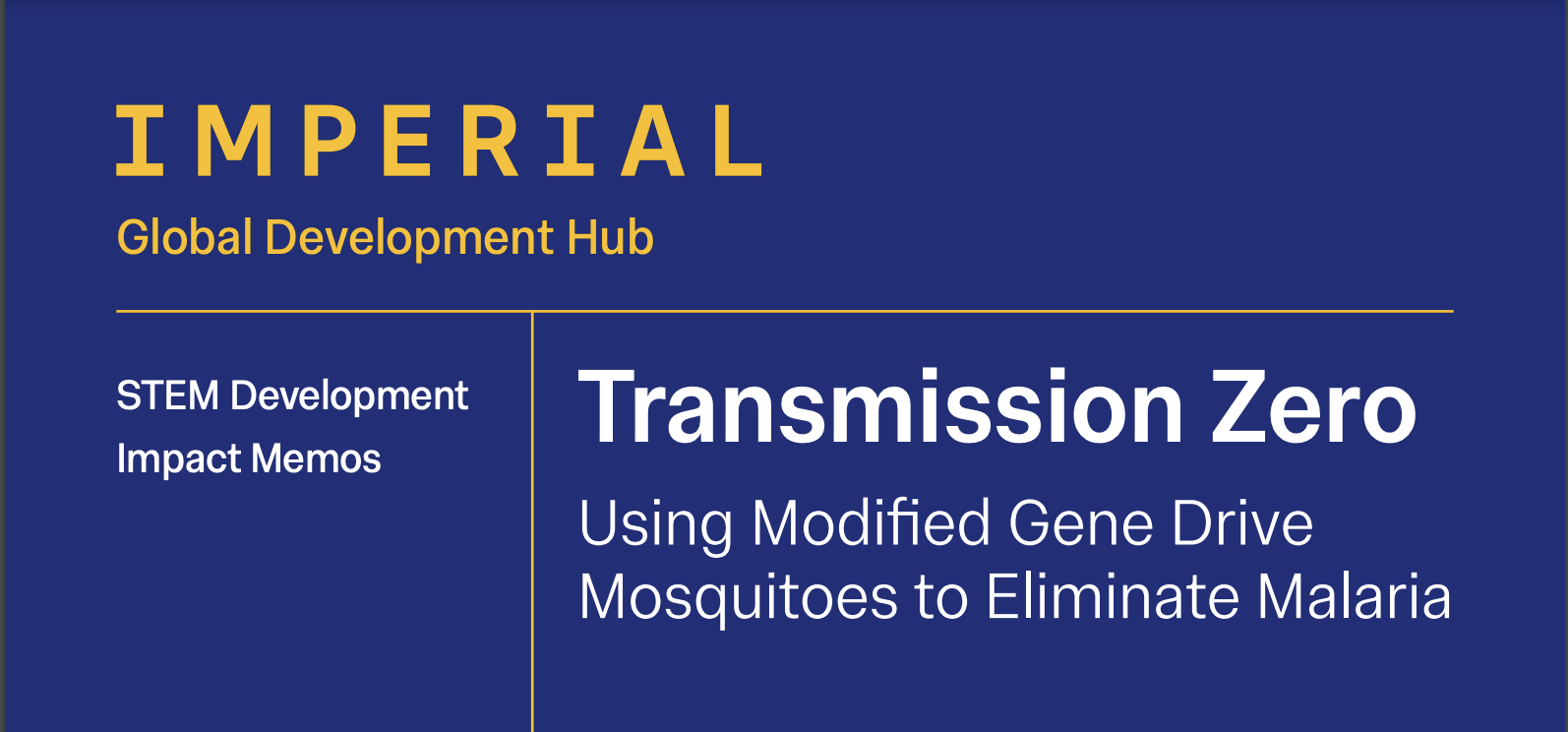
CONVERSATION: Ifakara, Imperial talk mosquito genetic modification for malaria control

We are proud to have contributed to this critical conversation on the future of malaria control, featured in Imperial College London’s Global Development Hub STEM Impact Memo series. The latest edition, titled “Transmission Zero,” highlights the groundbreaking use of gene drive technology to combat malaria by modifying mosquito populations — a promising approach in the fight against one of the world’s deadliest diseases.
Through this collaboration with partners at Imperial College London, the Ifakara Health Institute brings forward Tanzanian expertise, research infrastructure, and regional leadership. Our teams are working together to develop not only the science but also the regulatory and ethical frameworks needed for potential deployment in Africa.
In the memo, Dr. Dickson Wilson Lwetoijera, Principal Research Scientist at Ifakara Health Institute, joins Prof. George K. Christophides, Professor of Infectious Diseases and Immunity at Imperial College London, and Dr. Nikolai Windbichler, Reader in Genetics at Imperial College London, to share insights on why new tools are urgently needed, how gene drive technology works, and what it means for the communities most affected by malaria.
Dr. Lwetoijera highlights that community engagement is a continuous process, with local communities involved from the very start and throughout the project. He emphasizes that this partnership is not only key for securing regulatory approvals but also ensures that the voices of those most affected by malaria shape the decision-making as the team works to develop and scale new technologies.
🎧 Listen to the Voices of Global Science audio memo:
Transmission Zero on SoundCloud
📄 Download the full memo and learn more:
Global Development Hub – Transmission Zero
We are honored to stand alongside global partners in driving forward innovative, equitable solutions that can transform health outcomes in Africa and beyond.
